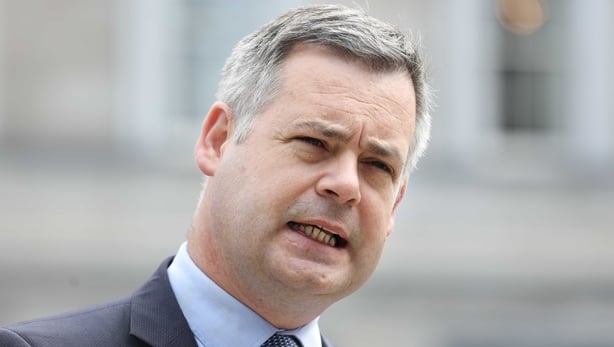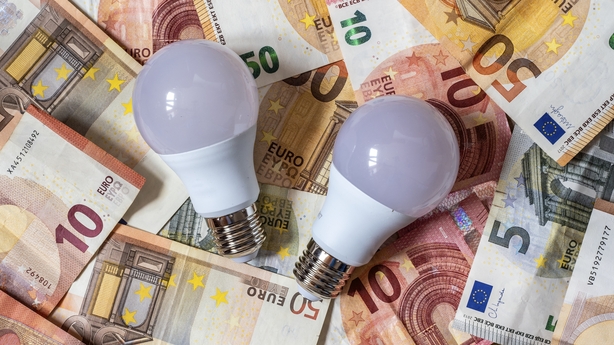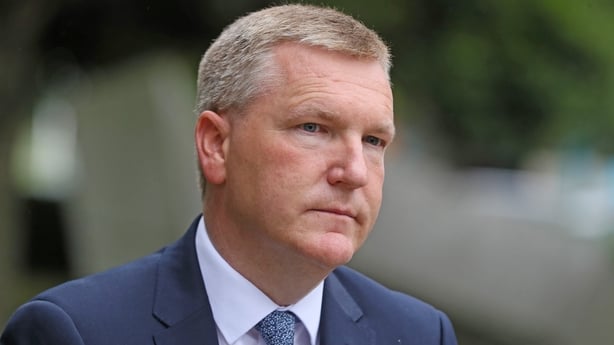Just hours before the Government announced on Thursday evening a package to ease the burden of inflation on households, the Tánaiste predicted in the Dáil that "no matter what we announce the Opposition will say it's not enough".
That turned out to be something of an understatement, and if Leo Varadkar’s intention was to disarm the Opposition, then it can't be said to have worked.
They went in full throttle with their criticism of measures, which would "scratch the surface" ,according to Sinn Féin, and would "fail to deliver anything but more sleepless nights", according to Labour.
And they warned that wouldn't be the end of it. The next morning, Sinn Féin’s Pearse Doherty announced on the plinth outside Leinster House that Sinn Féin "aren’t giving up on this" declaring "this battle still has to take place".

The coalition had sought to balance the political response with the economic, addressing an issue that threatens to be more than just a political headache, while seeking largely to avoid unpicking taxation or social welfare measures of last October’s Budget.
After sustained pressure on worries around the cost of living for weeks now, the coalition knew it had to act - and to do so fast.
But it was limited by its intention to avoid a mini-Budget. This was not just for the optics - it’s a phrase that screams that the Government has lost control of the economy (the last supplementary budget was in April 2009 and was the most severe in decades.)
But there was also a strong sense that unpicking the Finance and Social Welfare Bills just two months into the year, was a precedent that ministers in charge of the purse strings were not keen to set.
This meant changes to income tax and wholesale changes to social welfare rates were not going to form part of the package announced on Thursday, despite some speculation to the contrary.
It also meant that VAT rates would not be changed. Previous experiences of using VAT measures as a policy lever have taught that once a rate is reduced, it is politically near-impossible to bring it back.
VAT for hospitality was reduced from 13.5% to 9% following the 2008 crash. While it was supposed to return to its original rate in 2013, this did not happen until 2019, only to be reduced again in 2020.

The main plank of the package - the electricity credit - met the objective of being something that could deliver tangible help for households, quite quickly. It was also something, as Minister for public Expenditure Michael McGrath pointed out, that could help those who fall outside the social welfare threshold.
But its universality left the coalition open to criticism, particularly around the fact that around 62,000 holiday home owners and indeed TDs and ministers themselves would benefit from it.
A 20% cut in the fees for public transport was considered a win for the Green Party.
But according to some TDs, it could prove to highlight rural-urban divide, particularly ahead of a planned hike in carbon taxes in May, which will disproportionately affect people in parts of the country where there are fewer or no public transport options. Sinn Féin is opposing that tax increase and is linking it to cost of living concerns.
The Government is braced to stay under pressure on the cost of living issue for the short term.
Legislation allowing for the €200 electricity credit is still progressing through the Oireachtas meaning there will be more opportunities to debate it in the House.
This is what Mr Doherty was referring to when he said the battle is still to take place. Sinn Féin will also have a private members' motion on the issue in the Dáil this week.
But a bigger concern for the coalition will be whether the measures will be enough in the medium to longer term to allay concerns among voters, particularly around the cost of fuel.
Much of that will depend on the inflationary cycle and international factors influencing the price of gas and oil, which are outside the Government's control.

Minister McGrath has sought to manage expectations around any further significant interventions to tackle the cost of living.
"Of course, as normal, we keep all these under review. Our expectation is that the level of inflation will ease over the period ahead, and our plan is to introduce the next Budget in October of this year," he said.
This was repeated by Taoiseach Micheál Martin, who said on Friday there was "a billion in the Budget and a billion last evening, and the majority of yesterday would have been a once off and no, we will not be seeing another iteration of that".
His Government will be hoping the measures will buy them some political breathing space until then. But the Opposition has other ideas.






